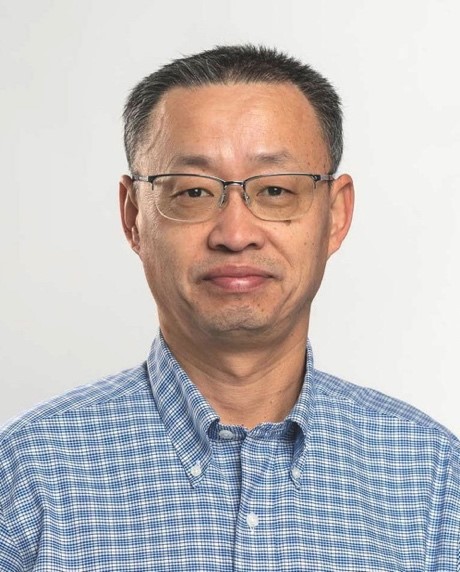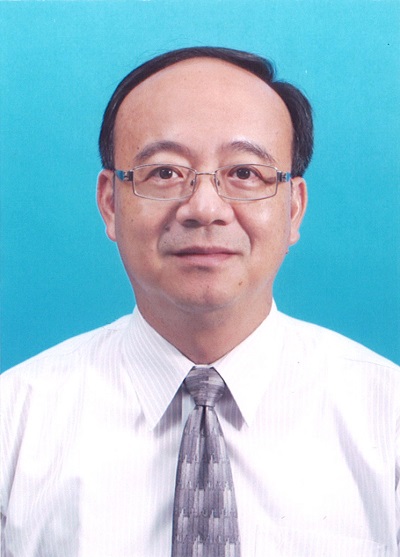Keynote Speaker I:
"Title:Piezo-driven Nano-positioning System and Its Application to an Imaging Fabry-Perot Spectrometer"
Abstract
Piezoelectric actuators have many advantages such as high resolution, fast response, large bandwidth, and good temperature stability. They have been used in a wide range of industrial applications to realize high precise motion. However, the piezoelectric actuators inherently have their own nonlinear behaviour such as hysteresis, creep, thermal drift and vibration which deteriorates overall performances including stability of the developed systems. In this talk, Prof. Shan will present his work on dynamics modeling and compensation for the nonlinearities of the piezoelectric actuators, as well as its application to an imaging Fabry-Peort spectrometer for atmospheric studies.
Bio-Sketch
Prof. Jinjun Shan is a Full Professor at the Department of Earth and Space Science and Engineering, York University. He joined York University in 2006 as Assistant Professor of Space Engineering and was promoted to Full Professor in 2016, he also served as the department chair in 2018-2023. Prof. Shan’s research areas include dynamics, control and navigation of autonomous systems, multi-agent systems, smart materials and structures, spacecraft dynamics and control, and space instrumentation. His pioneering work has led to over 200 widely cited publications. Prof. Shan’s accomplishments in research and engineering education have seen him recognized with prestigious awards such as a Fellow of Canadian Academy of Engineering (CAE), a Fellow of Engineering Institute of Canada (EIC), and a Fellow of American Astronautical Society (AAS).

Jinjun Shan
Professor of York University, Canada
(Fellow of Canadian Academy of Engineering (CAE), a Fellow of Engineering Institute of Canada (EIC), and a Fellow of American Astronautical Society (AAS))
Keynote Speaker II:
"Title: XMHH-Net: Explainable multi-source heterogeneous hypersonic data fusion neural network for global stability in compression corner flow "
Abstract
We propose an explainable heterogeneous hypersonic data fusion neural network (XMHH-Net) for the global stability prediction of compression corner flow. In contrast to traditional global stability analysis (GSA), this approach reduces the time by five orders of magnitude, thereby enhancing the efficiency of flow field stability assessment. Compared to deep neural networks (DNN) that utilize single-source data, this method incorporates surface pressure and friction coefficients, resulting in a 19.9% increase in accuracy for small training datasets and a 94.5% reduction in mean absolute error (MAE). Furthermore, this data fusion approach considers effective data types and key surface coefficients, incorporating physical prior knowledge to enhance model interpretability, thus improving predictions, and reducing data dependence. Notably, when considering pressure coefficients or friction coefficients individually, the former has been shown to be more effective for predictions, which aligns well with physical phenomena. By employing feature extraction techniques, four sets of key surface coefficients that influence global stability are selected as model inputs, and the results are comparable to those obtained using the entire compressed corner surface distribution data (78 sets).
Bio-Sketch
Professor Wen received his Bachelor of Science degree from the Department of Mechanical Engineering at the National Taiwan University in 1986 and Master of Science and PhD from the Department of Aeronautics at the California Institute of Technology (Caltech), U.S.A. in 1989 and 1994 respectively. He worked at Caltech as a Research Fellow from February 1994 to July 1994 and then continued his teaching and research works at the Department of Mechanical Engineering at the Da-Yeh University, Taiwan. He was promoted to full professorship in February 2002. He had been the Chairman of the Department of Mechanical and Vehicle Engineering from August 1997 to July 2000, and the Provost from August 2004 to July 2006 in the Da-Yeh University, Taiwan. In August 2006, Professor Wen joined the Department of Aeronautics and Astronautics of the National Cheng Kung University (NCKU), Taiwan, before joining the Department of Mechanical Engineering, The Hong Kong Polytechnic University in 2012 as professor. While serving in HKPolyU, he has been the associate head (research) of ME department and the interim head of AAE from 2015 to 2019 and from 2019 to 2021, respectively. He is currently serving as the head of AAE. Professor Wen has authored and co-authored more than 300 scientific papers, conference papers and book chapters. He was also awarded 15 patents. His current research interests are in the areas of (1) Technology development of UAVs and MAVs; (2)Hypersonic/Supersonic aerothermodynamics; (3) Shock/Droplet and Shock/Bubble Interactions; (4) Detonation; (5) Flow Control by plasma actuators; and (6) Urban Environment Simulation. Professor Wen, served as associate editor of the prestigious international journal—AIAA Journal and the vice chair of the technical committee of fluid mechanics, ASME. He is currently an HKIE Fellow and AIAA Associate Fellow and editor of Shock Waves Journal, and Advanced in Aerodynamics. He is also a member of, various key professional boards and bodies related to the Aerospace Engineering.
To be announced soon

Chih-Yung Wen
Professor of The Hong Kong Polytechnic University, Hong Kong, China
Head of AAE, PolyU, HKIE Fellow and AIAA Associate Fellow)
